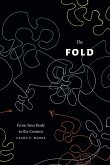This is a groundbreaking study of remarkable lucidity and depth that offers an insightful comparison of two of the most influential philosophers of the twentieth century. In fact it is much more than a comparison. One who reads this book is rewarded with an extraordinarily insightful, independent account of both Heidegger and Deleuze and this is what makes the comparisons so cogent and effective. Sholtz also effectively shows the indissoluble connection between aesthetics and politics in both of these authors and argues persuasively that the future of politics will follow the path Heidegger and Deleuze have opened. Professor Walter Brogan, Villanova University A multi-layered reading of the intersections between two of the most influential figures in contemporary philosophy The Invention of a People explores the residual relation between Heidegger's thought and Deleuze's novelty, focusing on the parallels between their emphasis on the connection of earth, art and a people-to-come. Contextualising the problematic of a people-to-come within a larger political and philosophical context of post-war thinkers of community such as Bataille, Blanchot and Nancy, Sholtz offers a creative approach to the work of these two thinkers. Deleuze's project is therefore cast as both an extension and radicalisation of the Heideggerian themes of immanence, ontological difference and the transformative potential of art. Presenting interstitial readings of Paul Klee, Kostos Axelos, Arthur Rimbaud, the 1960s art collective Fluxus and artist Brian Fridge, Sholtz invents creative encounters which act as provocations from the outside, opening new lines of flight and previously unthought terrain. Ultimately Sholtz develops a diagrammatic image of a people-to-come that is constantly in flux and can answer the demands of the untimely future. Janae Sholtz is Assistant Professor of Philosophy, Alvernia University. Cover image: Le jardin magique (the magic garden), Paul Klee, 1926 (c) The Art Archive / Solomon R. Guggenheim Museum New York / Gianni Dagli Orti Cover design: [EUP logo] www.euppublishing.com
Hinweis: Dieser Artikel kann nur an eine deutsche Lieferadresse ausgeliefert werden.
Hinweis: Dieser Artikel kann nur an eine deutsche Lieferadresse ausgeliefert werden.








